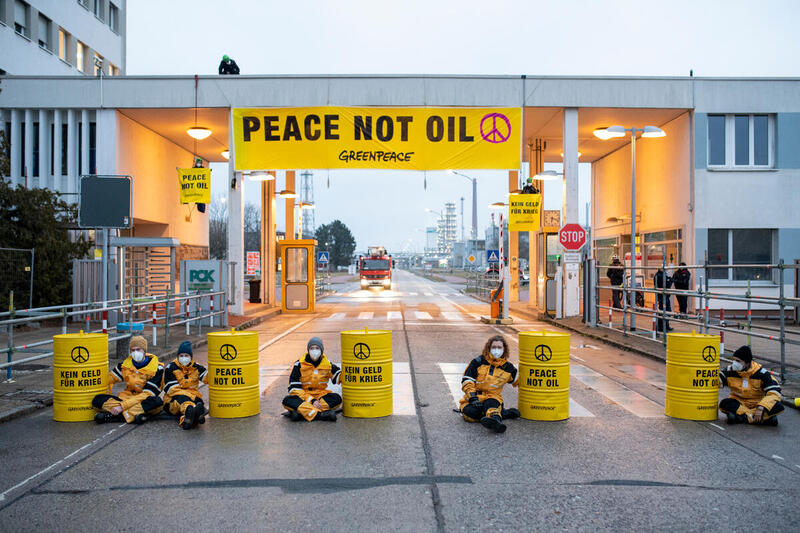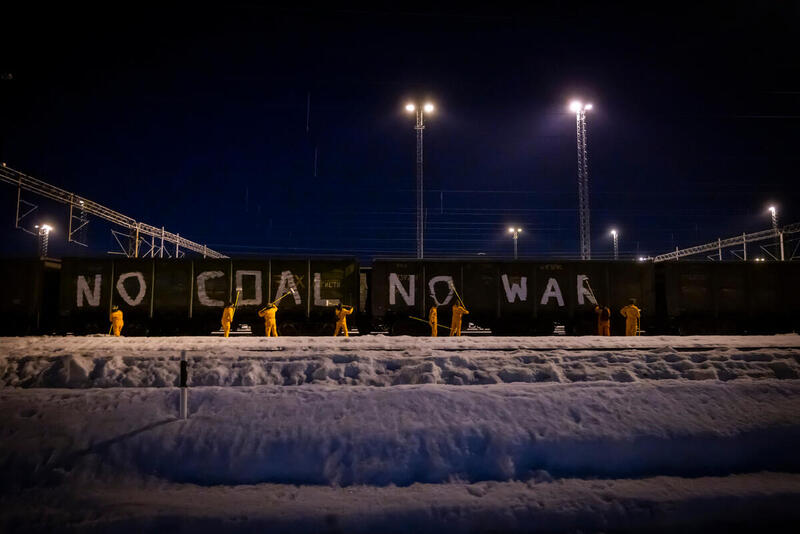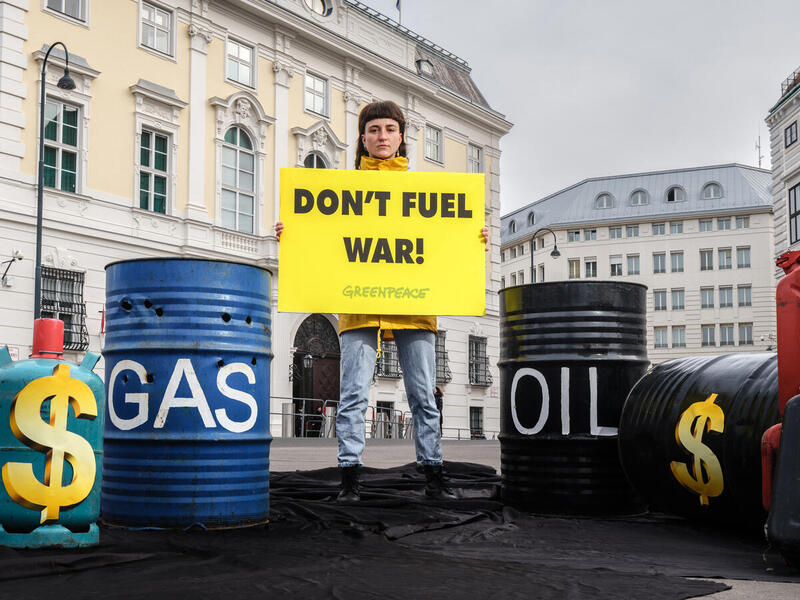There has now been a month of war in Ukraine. This conflict has captured the attention of much of the world, and sparked a lot of speculation on what it will mean for international relations, security, the global economy and energy.
How is the war in Ukraine impacting climate change and the role of fossil fuels? Things can change rapidly, so please keep in mind that the situation could have changed dramatically since this was published.
Climate change
Before President Putin gave the go ahead to invade Ukraine, it felt like the world might be able to move forwards on other global priorities, while still being responsive to remaining COVID-19 risks. In Canada, a poll done in October 2021 found that 66% of people in Canada wanted to see governments do more to reduce carbon emissions and 51% believed we needed to greatly slow or stop the development of oil and gas. The global meeting on climate change in Glasgow in November produced an agreement that laid out an explicit plan to reduce coal use for the first time. Things were far from perfect, but there was still some momentum. A few months later, a brutal military invasion of Ukraine began.
In order to truly tackle climate change, the world needs to be able to work together. We need diplomacy, trust, and commitment. You might be worried that these things will be in short supply, as a war in Ukraine drags on. It’s easy to imagine major conflict overshadowing climate change as a priority, however it does not have to become a choice between them, but how actions we take now can address both.
The COVID-19 pandemic contained similar opportunities to tackle more than one crisis. The virus laid bare the inequities of our societies and the possibility of rapid societal change at the same time. The invasion of Ukraine is another emergency that makes us painfully aware of what is wrong with how our world works, and how we might now be able to change things that appeared immovable before. Which brings us to …
Fossil fuels
We need to push our governments to resist merely replacing fossil fuels from Russia with other fossil fuel sources – this moment should motivate us to break free of our dependence on fossil fuels faster.

One of Ukraine’s leading climate scientists Svitlana Krakovska recently said to The Guardian newspaper: “I started to think about the parallels between climate change and this war and it’s clear that the roots of both these threats to humanity are found in fossil fuels …This is a fossil fuel war. It’s clear we cannot continue to live this way, it will destroy our civilization.”
Keith Stewart, our climate and energy expert at Greenpeace Canada wrote about this in more detail in a Toronto Star op-ed, “No one has ever gone to war over the wind or the sun, nor can you threaten to cut off your neighbours’ access to them. Oil, on the other hand, is often at the core of conflict.”
Countries in Europe are particularly dependent on Russia for oil and gas, both as an energy source and an investment. Now, many are rethinking this. Organizations from all over the world, including Greenpeace, are calling on Europe, and other countries including Canada, to rapidly divest from Russian oil and gas companies, ban Russian fossil fuel imports and phase out fossil fuels overall. In recent weeks, Greenpeace volunteers in Belgium, Denmark, Germany, France, Austria, and Spain have protested oil, gas and coal shipments, as well as fossil fuel profits coming into those countries. Meanwhile, Greenpeace UK launched a tanker tracker Twitter bot, that is monitoring shipments of Russian fossil fuels.

A new report from Profundo lays out how European banks and investors have fueled the Russian oil and gas sector with billions of euros. Stand.earth recently found Canadian banks to have 110 million USD invested in Russian oil and gas companies specifically, while overall Canadian banks are heavily invested in fossil fuels.
In fact, we know that since the Paris climate agreement was signed in 2015, TD, Scotiabank, CIBC, RBC, BMO and Desjardins together provided approximately $694 billion to fossil fuel companies in the form of loans and underwriting services. Meanwhile, over the same period, the Canadian federal government spent a comparatively paltry $60 billion on climate action and clean growth. This is according to research from Profundo conducted in 2021.
It is not only Russian oil and gas that funds violence and conflict. Here in Canada, the expansion of our own fossil fuel infrastructure has led to often violent and repressive crackdowns on Indigenous protestors and their allies. In November 2021, the resistance of Wet’suwet’en land defenders to the Coastal Gaslink pipeline construction was met with aggressive RCMP raids, using military tactics.
Around the world, billions continue to be poured into fossil fuels, and fossil fuels continue to fuel climate change, oppression and conflict.
How do you stop this? In his Toronto Star opinion piece, Keith wonders whether the use of economic sanctions on the Russian government and its top leadership could be making the oil and gas industry nervous. What if one day the powerful sanctions we’re seeing used on the Russian government and oligarchs were deployed on those who continue to fuel climate change? Keith says: “Imagine if all oil, coal and gas companies were cut off from banks and ill-gotten wealth this way. It would be revolutionary.”

The situation in Ukraine is terrible, getting worse, and has so many implications for the world. It is possible that this conflict could distract our leaders from other pressing issues like climate action – if we let that happen. It doesn’t have to be a choice between dealing with climate or dealing with conflict, but identifying what steps we can take that address both. Speeding up our transition away from fossil fuels is one step in the right direction.
Help stop the billions flowing to the fossil fuel industry from top Canadian banks.
Ready to do more? You can always call or write to your own member of Parliament and ask them what they are doing to speed up our transition away from fossil fuels, and to support all refugees. Let them know that this is important to you. Find your MP and their contact information here.
Part 2: War in Ukraine and the impact on peace, safety and nuclear threats.
